- Home
- Thomas H. Cook
The Crime of Julian Wells Page 7
The Crime of Julian Wells Read online
Page 7
Marisol watched them for a little while, and during that interval I noticed her mood descending. “I do not like the tango,” she said as she turned and led us away from the dancers. “The man rushes forward. The woman pushes him away, then turns her back to him. The man rushes to her again and jerks her around with violence. It is disturbing to me, this dance. It is not romantic. It is—what is the English word?—prelude. Yes, it is the prelude to a beating.”
We returned to the hotel at around eight in the evening. I was tired, but Julian was full of energy, so we went to the lounge for a nightcap, where he talked of nothing but Marisol. He had seldom traveled since his father’s death, and I could see that her foreignness appealed to him: the fact that she was bilingual, which he was not, and perhaps even her indigenous facial features.
“Do you suppose she really isn’t political?” he asked. “That business of having only two bad things to choose from?”
“That’s what she said.”
“But coming from that poor background, she must hate the junta,” Julian said.
“Yes, but maybe she’s one of those people who look within themselves for a way out of oppression,” I told him. “That’s why they get on boats and sail to new worlds.”
Julian hesitated briefly, then said, “If someone like Marisol doesn’t have a fighting chance, then something’s very wrong, Philip.”
I smiled. “You’ll fix that when you’re secretary of state,” I assured him.
I’d meant this only half jokingly for at that moment it seemed quite possible.
“That’s not for me,” Julian said. “It’s all politics. Your father knows that. He’s had plenty of experience with it. You want to do good, but the policy is evil, and you must serve the policy.”
“What then?” I asked. “You have to do something with your life.”
“Something behind the scenes, I guess,” Julian said. “The secret gears.”
“The secret gears?” I asked, rather amused by how vague, yet adventurous it seemed. “You mean dark alleys and notes slipped into drop boxes? That’s the work of spies, Julian.”
“I suppose it is,” Julian said. “But it would be better than an office at Foggy Bottom.”
“It would also be more dangerous,” I reminded him.
“More dangerous, yes,” Julian agreed. “But only for me.”
And with that, he laughed.
9
“Laughed?” Loretta asked when I told her this.
It was the day I was to leave for Paris, and she’d insisted on taking me to the airport. She’d arrived late in the afternoon, dressed in a dark green pants suit and looking so surprisingly rested that I’d have sworn she’d spent time in a spa.
“Laughed, yes,” I told her. “So I didn’t take him seriously.”
She was seated by the window, the park to her back, the light quite bright, so that she was half in silhouette. “Julian would have made a good spy,” she said. “That’s clear from his books, how good he was at integrating information, making connections, seeing the big picture.”
“That’s true,” I said. “He did that in The Eyes of Oradour. In one passage you’re not even in France. He takes you to the sarcophagi of Cozumel, describes how small the people of that island were, and from there to how small all the Indians of South America must have seemed to the likes of Cortés and Pizarro.”
“It’s a great skill, putting such details together,” Loretta said. “And of course the clandestine part of it would have appealed to Julian when he was a young man, the secret devices.”
Like one seated in a dark movie house, I unexpectedly imagined Julian as precisely that, a figure in a rainy alleyway, dressed in a trench coat, the brim of his hat pulled low, smoking a Gauloise as he waited for his beautiful female contact.
No, that would not have been it, I thought.
Julian would have been waiting for something else.
But what?
On the heels of that question, a strange anxiety swept down upon me, and as if from a great height, I saw Julian lean over the side of the boat and make those two horrible motions, and then a circle of blood sweep out from the boat, deep and red, flowing out and widening until the whole pond was a deep, thick, impenetrable red.
Loretta’s voice suddenly brought me back.
“I have something for you,” she said, then reached into her pocket, drew out a photograph, and handed it to me. “It was in Julian’s notebook. The one I gave him the morning he died. I found this picture tucked inside, so I think he must have been thinking of that first trip.”
In the photograph Julian and Marisol were posed before the Obelisk, a place we’d often used as a point of rendezvous. It was around noon, the sun directly overhead so that it hardly cast a shadow. Marisol stood to Julian’s left, and he’d put his arm around her waist and was gently drawing her toward him.
“You took that picture, didn’t you, Philip?” Loretta asked.
“Yes,” I answered. “It was our last day together.” I stared at the picture a moment longer, then looked at Loretta.
“How very odd,” she said. “Julian had the same expression on his face as the one you just had.”
“What expression?”
“Dread,” Loretta answered. “We were having dinner three days before he died. I’d been editing a book on Soviet espionage. There was an agent with the code name Beaker, quite a clever agent. He was a double agent, actually, working for one side while pretending to work for the other. Beaker was a very gifted little actor, but at one point, when he is sitting with another agent, he knows this other agent is trying to determine if Beaker, himself, is a spy. So Beaker is trying very hard to appear completely nonchalant, give no hint that he even knows that this other guy is out to get him. In the past he has always been able to completely conceal his terror of being discovered, but this time, his nerves give way . . . and he turns the corner of napkin. It’s a tiny little movement, but it’s a nervous movement, and at that moment Beaker knows absolutely that the other guy has seen it, and has read it for what it is.” She smiled, but cheerlessly. “It was as if a tiny bead of sweat had just popped onto his brow, but it was enough for the other man to see the jumpy little spy beneath the mask.”
“It’s almost comic,” I said.
“I thought so, too,” Loretta said. “But it wasn’t comic to Julian. I could tell by the look on his face. His mind was going somewhere. And one thing was clear. He understood Beaker. I could see that. He understood how his nerves had cracked. He didn’t talk for a second or two, then he said, ‘When your life is a lie, the truth has high stakes.’”
We watched each other silently for a moment, a time during which a dark cord seemed to draw us closer to each other.
“One more thing,” she said. “Another little anecdote. Then you’ll have all I have to give you about Julian.”
She appeared somewhat reluctant to tell me the story.
“The day before he died, he went into the sunroom after dinner,” she said. “There was a notebook on the little table beside his chair. I saw him take it up and write something in it. Then he put it back down and after a while he dozed off. When I went in to wake him, I saw what he’d written. A single sentence, but I remember it because it was so strange.”
Briefly she seemed captured in that very strangeness.
“He’d written, ‘Life is, at last, a Saturn Turn.’”
I had no idea what this meant, and told her so.
“I have no idea either,” Loretta said. “But it must have meant something to Julian, because after his death, when I found that little notebook, I saw that he’d torn out that page. I couldn’t find it anywhere, and it was summer, so there was no fire. I looked in all the places he might have tried to discard or hide it. I never found it, so there was only one place he could have put it.”
“The pond,” I said.
She nodded. “Hiding that note was his penultimate act.”
“And it was an act of subter
fuge,” I added. “Of concealment.” I felt the soft click of a tumbler. “One of his themes.”
Now the dread that had earlier marked Julian’s face, and more recently my own, settled upon Loretta’s features, too.
“Julian once told me about a myth he’d come across,” she said. “It came from the Pacific Islands. It was called the ‘Myth of the Reeds.’ It says that at death, the soul of each man is bound by his hidden crimes, each one wrapped around him like a reed. And it is only as these crimes are solved that he is freed.” She let this settle in before she added, “I sometimes thought that Julian was tangled up in a reed.”
“And died that way?” I asked.
“Unless that’s what he was cutting,” Loretta said. “Metaphorically, at least.”
I could find nothing illuminating to add to this, and so we talked of other things until the hour came, and we set off for the airport.
Evening was beginning to drift down over the city by then, lights coming on, both in the buildings and in the traffic. The time had come for me to leave.
At the airport, I pulled my luggage from the back of the car.
“When will you be back?” Loretta asked.
“I haven’t booked the return yet,” I answered.
“Does that feel good?” Loretta asked.
“I suppose it does, but at the same time I know that I’m a little at sea in all this,” I admitted. “Let’s face it, I was never trained in finding anything but metaphors and symbols.”
She smiled. “Julian used to say that you find more when you don’t know what you’re looking for.”
I felt a wave of admiration for my lost friend, the random riches of his work. Harry had often complained that he could not be categorized. Was he writing about crime or was he writing about history? Did you put him in “General Nonfiction” or did you put him in “True Crime”? His books had been strewn with little nuggets of everything: history, science, philosophy, a vast number of quotations, all of which made it nearly impossible for booksellers to find a slot on the shelf. I’d even found his books tucked hopelessly in “Travel” and even once in “Vampires.”
“He found a great deal,” I said.
“And so will you, Philip,” Loretta assured me.
I thought of all the many years during which she had accumulated her own great store of knowledge and experience, all she had read and all she had endured, a bounty I found myself wanting to share.
“I hope so,” I told her, “because I think something very important depends upon it.”
“What?” she asked.
“Us,” I answered softly, and knew that in some inexpressible way this was true.
Loretta came forward and kissed me on the cheek. “Julian could not have had a better friend,” she said.
10
But Julian had had perhaps as good a friend in René Brossard.
They’d met in Africa, when Julian was researching the Paul Voulet outrages, and had subsequently traveled together to some of the remote outposts where those atrocities had been committed. According to Julian, Brossard had a lingering aura of old crimes, though the nature of those crimes had never been revealed. Even so, there was a hint of violence both suffered and inflicted, Brossard’s one of those lives that had both struck and received a blow.
I’d met him in Julian’s company a few times, though he’d made certain to remain in the background on those occasions. Whether this had been the product of Gallic manners or simply that he was slow to warm to strangers had never been clear. Of course, it might equally have been the outward evidence of some inner furtiveness, for there was surely something veiled about Brossard.
He had aged quite a bit during the intervening years. Where before his hair had been sprinkled with gray, it had now gone white. His eyes were more webbed and the lines in his long face had deepened. The muted light of Charles de Gaulle Airport added a layer of grayness to his unexpected pallor.
“I was very sad to hear of Julian,” he said as he offered his hand.
“It came as quite a shock.”
“Hmm,” René said.
We exchanged a few pleasantries, then René led me to his car, and we set off for Paris, where I’d booked a small hotel not far from l’Opéra.
It was early in the morning, but I’d slept on the plane, so rather than bid René a quick farewell and go up to bed, I asked him to join me for a cup of coffee so that we could begin to discuss whatever itinerary he thought appropriate for my stay.
“I am sorry to say, but there is a delay in getting you into Julian’s apartment,” he informed me. “It is my fault that I did not tell you before, but I did not learn of it until this morning.”
“What’s the problem?” I asked.
“The one who owns the building, he has gone from the city for a few days, and I cannot get the key,” René said. He shrugged. “I only come to the building to get Julian’s mail. I never have a key to go inside.” He smiled. “Perhaps he was not so good at the keeping house.” He drew a pack of cigarettes from his jacket pocket, thumped one out, and lit it. “But he was a good writer, Julian. Very good.” He seemed at the end of what he knew of Julian. “Always writing. Tap, tap, tap. Day and night.”
“But no one can write twenty-four hours a day,” I said. “He must have gone out from time to time.”
“Sometimes, yes,” René said. “Mostly to this little bar, Le Chapeau Noir. In Pigalle.”
“Yes, I remember Julian writing about that place,” I said. “He seems to have gone there quite a lot.”
“It has cheap wine, and Julian was always lacking in the money,” René told me. “But, me, I do not like it. It is full of refugees and émigrés. Africans and Arabs, people on the run from bad things.”
“What kind of bad things?” I asked.
“Crimes,” Brossard answered. “There were such places in Algiers. Criminals are like chickens, they crowd in upon each other. In a place like Le Chapeau Noir, there is blood on every hand.”
“Except for Julian’s, of course,” I said.
“Except for Julian’s, yes,” Brossard agreed.
“Then why did he choose such a place?” I asked.
“It was near his apartment,” Brossard said. “Perhaps it was the first door that opened to him.” He shrugged. “He was a sad man, Julian. They are often in this way, such people. I saw it early. He was drawn to darkness. This I saw at Oradour.”
“Oradour,” I said as an idea occurred to me. “Since I can’t get into Julian’s apartment, would you mind taking me there?”
“It is only a destroyed village,” René said. “But, okay, when do you want to go?”
“Tomorrow morning?”
“So fast? You are not wanting to sleep tomorrow, for the jet lag?”
“No,” I answered. “I’ll be rested by morning.”
“Okay, tomorrow we go to Oradour,” René said. He took a draw on his cigarette, then crushed it out. “I remember that Julian, he was not so interested in the Germans. But the Malgré-nous, these interested him.”
He saw that I did not speak a word of French.
“It means ‘despite ourselves.’ The Malgré-nous were from Alsace, these men, but the Germans drafted them. A few were at Oradour, and so they were made to do what they did, as they say, ‘despite themselves.’”
It struck me that this was one of Julian’s abiding themes, the sudden intervention of some event that without warning reveals a previously hidden element of character and by that means leaves a man forever the victim of a dark surprise.
“He talked to a few of them,” René continued. “Old men. Dead now.” His smile was wily, a ferret’s grin. “It would be just so in one of those books, no? A thriller? The hero seeks a witness, but when he finds him, this witness is dead?”
“In pulp fiction, yes,” I said. “But about that bar, the one Julian frequented, was there anyone he spent time with?”
René thought a moment, then said, “A priest. They spoke Spanish. This
man, he was from Argentina. Julian said that he had been to his country during a bad time.”
“The Dirty War, yes,” I said.
René nodded. “I remember one night, Julian spoke of a woman he met there. He was very moved by this woman. Julian did not often show his feelings, but this night, I saw that for this one, a pain was left with him.”
“Her name was Marisol,” I told René. “She disappeared while Julian and I were in Buenos Aires.”
René shrugged. “Lots of women disappeared during that time, no?”
“Yes, but they were kidnapped by the junta,” I told him. “Marisol, on the other hand, wasn’t in the least political.”
René laughed at what he seemed to consider my naïveté. “Not political? How do you know?”
The question was simple, but it surprised me anyway, for, in fact, I didn’t know whether Marisol had or had not been political. At least, not for sure.
With that recognition, a small crack appeared in the wall of what I’d always assumed about her. True, she’d only once mentioned the situation in Argentina, and even then only generally: Argentina es un país perdido.
But in what way had she thought it lost? I wondered now.
Marisol had never said.
One thing was clear, however. Although she always listened attentively when Julian spoke, it had been with an air of critical attunement, as if, because he was a privileged American, she should be wary of him and his worldview.
It was a distrust that surfaced one afternoon as we strolled down Calle Florida. Julian had begun to talk about the many far-flung places he hoped to visit in the future, one of which was Calcutta.
“The Black Hole of Calcutta is one of the places I’d like to see,” he said. “I always thought that phrase referred to the city itself, that it was hopeless and impoverished. A pit.”
Marisol listened to him in that highly attentive way of hers, as if seeking to understand not only the words, but what might lie between them, in the manner of a translator always in search of some new idiom or nuance in a language not yet fully mastered.
“But it was really an event,” Julian added. “A mass murder, really.”

 The Interrogation
The Interrogation Sacrificial Ground
Sacrificial Ground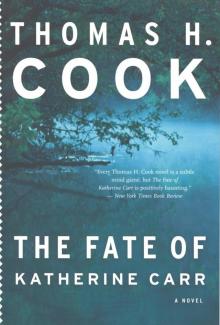 The Fate of Katherine Carr
The Fate of Katherine Carr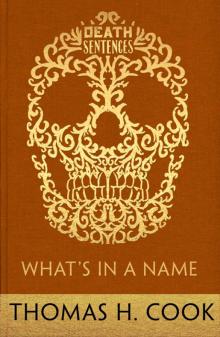 What's In A Name
What's In A Name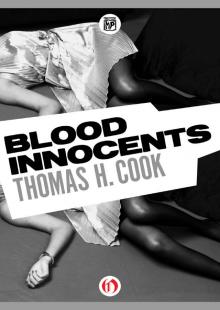 Blood Innocents
Blood Innocents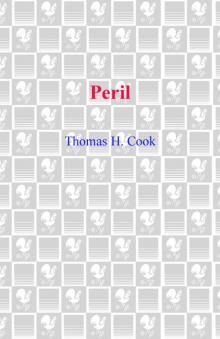 Peril
Peril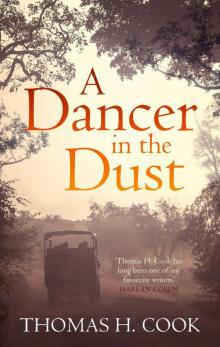 A Dancer In the Dust
A Dancer In the Dust Breakheart Hill
Breakheart Hill The Chatham School Affair
The Chatham School Affair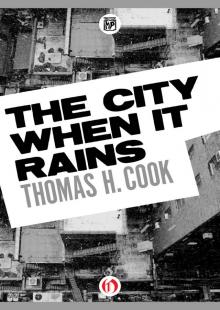 The City When It Rains
The City When It Rains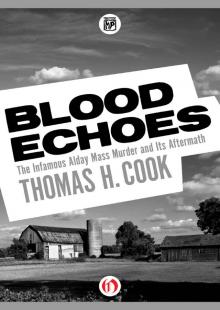 Blood Echoes
Blood Echoes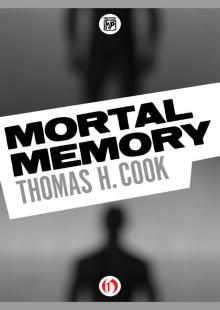 Mortal Memory
Mortal Memory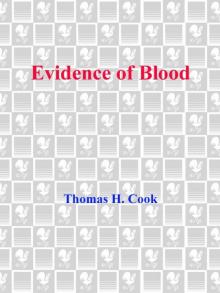 Evidence of Blood
Evidence of Blood Into the Web
Into the Web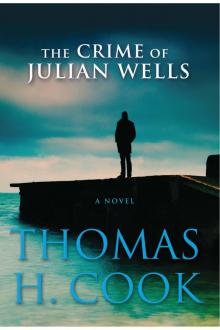 The Crime of Julian Wells
The Crime of Julian Wells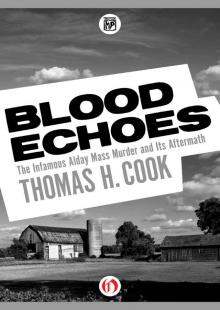 Blood Echoes: The Infamous Alday Mass Murder and Its Aftermath
Blood Echoes: The Infamous Alday Mass Murder and Its Aftermath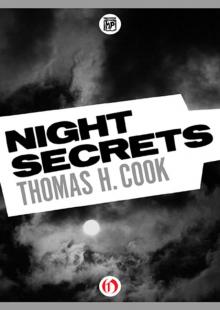 Night Secrets
Night Secrets Places in the Dark
Places in the Dark The Orchids
The Orchids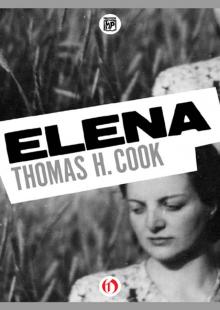 Elena
Elena Streets of Fire
Streets of Fire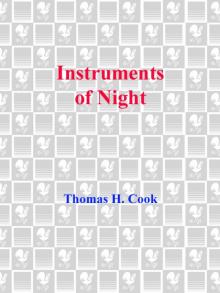 Instruments of Night
Instruments of Night Sacrificial Ground fc-1
Sacrificial Ground fc-1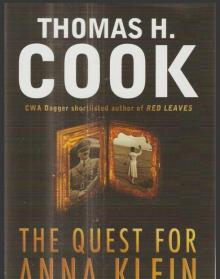 The Quest for Anna Klein
The Quest for Anna Klein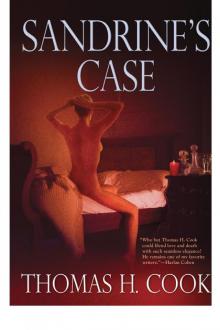 Sandrine's Case
Sandrine's Case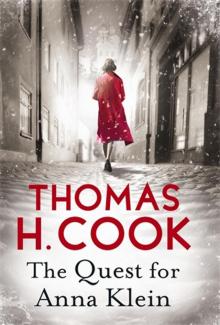 Quest for Anna Klein, The
Quest for Anna Klein, The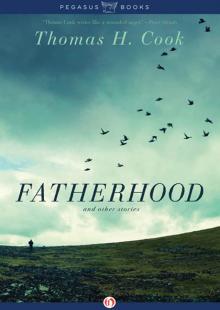 Fatherhood
Fatherhood Flesh and Blood
Flesh and Blood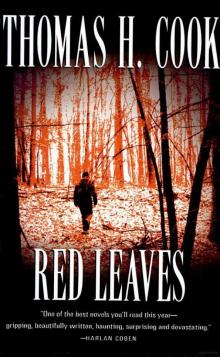 Red Leaves
Red Leaves